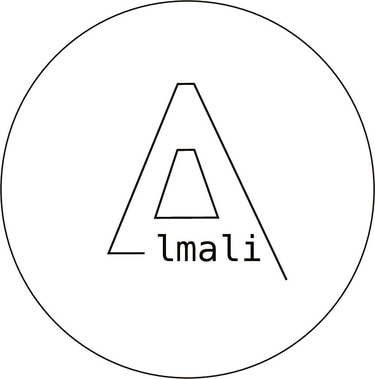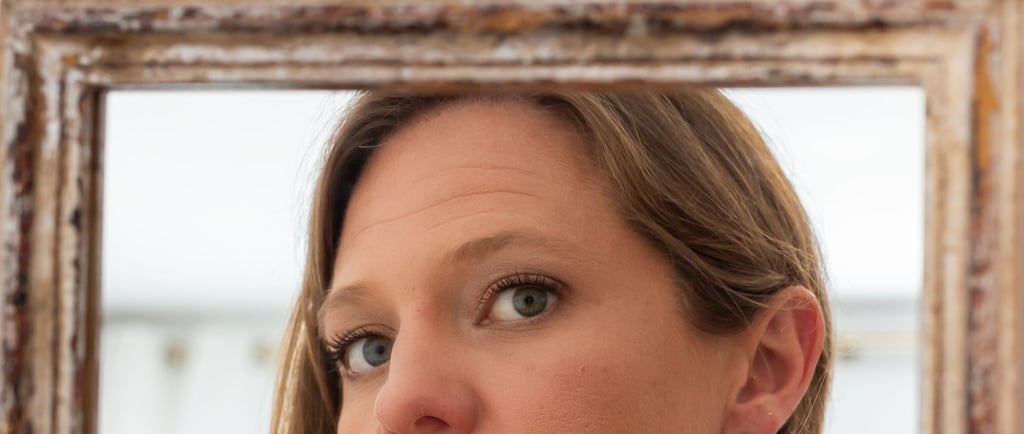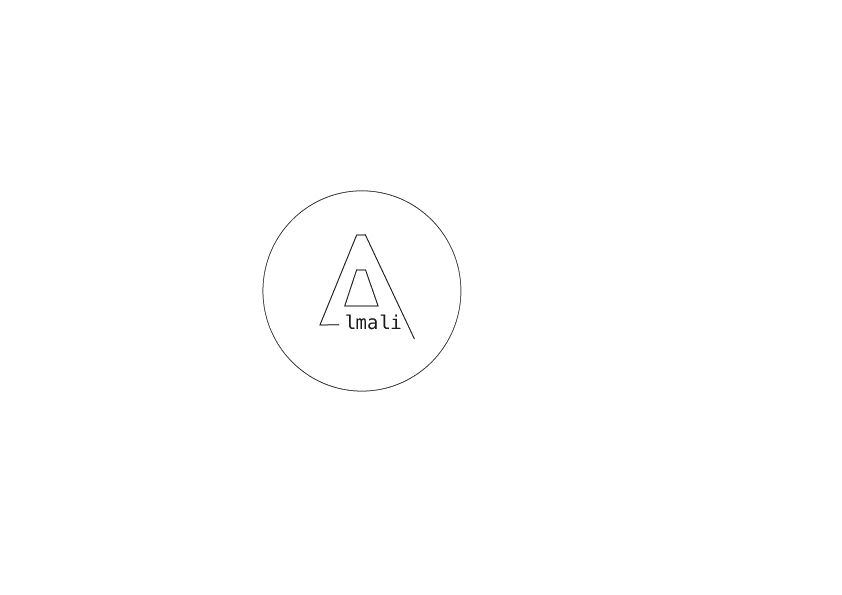I remember when my friend Sara said to me about 12 years ago “I am lost”. To me that sounded extremely odd at the time. What I did not gather then was that this is a point most of us reach at some stage in life and no reason for terrible despair but actually the prelude to what is a spiritual awakening of sorts and the next step in our road to become our true selves. From puberty, to the famous midlife crisis and onto the crisis of growing old and ultimately being faced with death, if we are lucky enough, we get a few important chances in life to listen to the wake up call, allowing us to truly be our essence.
To grow into yourself not only means you gain a stronger sense of identity and authenticity, connecting with your inner values, passions, and purpose, making choices truly aligned with your very own morals, leading a more virtuous life. It also gives you a deeper sense of purpose or mission in life. Recognizing this purpose can enhance self-worth and provide a sense of direction, contributing to a more positive self-image. This in turn will make you more resilient in the face of challenges and adversity, knowing your road. And it does something truly wonderful - It makes you part of something bigger by fostering empathy and compassion. This sense of connection will encourage you to be your best self when you view yourself as part of a larger whole.
When we are born we are a universe of possibilities but not without boundaries. We come with certain pre-dispositions, a range in which we can develop if you will. Behavioral genetics are diving deeper into this and are finding out more and more about how traits like temperament, disposition, and even our likelihood to experience certain emotions may be influenced by our genetic makeup. So when we talk about “being one's own boundary” this spans much wider than the philosophical concept. There is a genetic element in us that defines a baseline of sorts.
So, freshly hedged, part of who we will be is set but then comes the outside world, starting with caregivers, family members, and peers contributing to the development of self-esteem and self-worth. Our childhood experiences are so powerful and at the same time often so hard to grasp. They are ingrained in our brains, often hard to grasp at a later stage in our lives and yet are having a major influence on our relationships of all kinds, our work and to a great extent on our happiness. The more we were given grounds on which to develop and grow freely into our true selves being tiny, the less effort we will have to put into it when we are older. In an ideal world, we will have had caregivers that recognised our potential, didn’t lay their expectations and beliefs on us and allowed us to fully be, guiding us to using our abilities in the best way possible and helping us to see and learn how to live with our less amazing bits.
I am a mum myself and being utterly honest with myself, I screw up on a nearly daily basis. Not because I am a bad person but because I have been growing up with expectations, values and beliefs that weren’t mine and that I am figuring out as I go along being a mum.
So, truth be told, chances are, you will have some work to do, albeit with varying extents. If you have experienced childhood trauma, this means you will have gone down on the ladder of “growing into being me”. But allow me to comfort you; having to put more work in to get up there only gives you bigger muscles. It sucks but no matter what might have happened to you, there is a way.
Which brings us to the land of limitless possibilities; Neuroscience in the journey of growing into yourself. Let me start with telling you that thanks to neuroplasticity you are in charge of how this is going to go down. You decide within that genetic range that you are navigating, where you will end up. At the heart of self-identity lies the default mode network (DMN), a set of interconnected brain regions that work together to process information related to self-relevance, social interactions, and autobiographical memories.
Our identities are not static, they evolve over time as we learn, grow, and encounter new challenges. Neuroplasticity allows the brain to form new connections and rewire existing ones, enabling individuals to navigate changes in self-perception and adapt to life's fluctuations.
These fluctuations are most visible in the big moments of crisis the human being undergoes; puberty being the first of those. It is the time in our lives, when suddenly we venture out of the known, our more or less comforting homes and into the world of OTHERS and with it the desperate need to belong, to find love outside of what we have for granted. Peer groups and social interactions exert a powerful force on our self-image. The need for belonging and acceptance can drive individuals to conform to group norms and adapt their self-perception accordingly. Positive social support can reinforce a healthy self-image, while negative peer experiences may lead to internal conflicts and self-esteem issues. Puberty is only the beginning, a test phase whilst still in the safety of your home. The desire to form part of something larger thereafter accompanies us throughout life and it will take decades from the age of sweet 16 until most of us start to grasp the notion that we always have been.
Mirror Neurons and Empathy are our most important allies in this quest for connection of the self to wider spheres. Mirror neurons contribute to our understanding of self-identity by facilitating empathy and social understanding. These neurons fire both when an individual performs an action and when they observe someone else performing the same action. This neural mirroring mechanism helps us relate to others' experiences, fostering a sense of shared identity and interconnectedness.
Social Comparisons in turn are enemy number one, as we grow and engage with the world and begin to compare ourselves to others. These social comparisons can impact our self-image, either boosting our self-esteem or leading to feelings of inferiority. Media, societal standards, and cultural norms play a pivotal role in shaping these comparisons, influencing our perception of what is considered desirable or acceptable.
All of the above together with our life experiences in failures and achievements lead to the overall narrative we construct about ourselves. There is a constant internal dialogue that can be either supportive or critical. Cognitive processes such as self-attribution, self-schema, and self-evaluation influence how we perceive our abilities, worthiness, and identity.
So then, knowing all of this about how the idea of self forms, what can we do to choose our future? For truly the question is less about what has happened until now (it is entertaining, informative and at times depressing) and more what will you do NEXT?
Just like plants, we have an inherent ability to grow and blossom into our authentic selves. However, this process often requires intentional effort and self-reflection.
The 5 Steps to Growing into Yourself (over and over and over again…)
Self-Reflection and Self-Acceptance:
The first step towards personal growth is self-reflection. Take the time to introspect and understand your values, strengths, weaknesses, and aspirations. Find out what you are really good at and what you truly enjoy doing. Become aware of your talents. Engage in activities like journaling or meditation to gain clarity about your passions, interests, and the person you want to become. Honest self-assessment allows you to set meaningful goals and align your actions with your true self.
Once you know yourself, comes the fun, and truth be told, at times not so very fun bit of practicing self-acceptance. Recognize that you are unique, with your own set of strengths and weaknesses. Embrace your imperfections as part of your growth journey (yes, no way around that one, we all have them) and focus on your positive attributes. Treat yourself with compassion, practice self-care, and surround yourself with people and media that supports and uplifts you. Accepting yourself completely allows you to build a solid foundation for personal growth.
Try Philosophical Meditation if you want to get to know yourself a bit better and become your own best buddy.
Embrace Growth Mindset:
Embracing a growth mindset is crucial in your journey of self-growth. It is the basis of changing the narrative about yourself. It requires you to change that inner dialogue filled with contempt and turn it into “you can so f**king do this!!!”. NO MORE of the what ifs, what might others think and worst of all what if I fail! NO MORE LIMITS! The question is no longer what is the worst that could possibly happen but WHAT IS THE BEST THAT CAN POSSIBLY HAPPEN. Believe that you have the potential to learn and develop throughout your life (think neuroplasticity. No excuses. Proven by science!). More than that, you have the obligation to become the best possible version, making use of your talents for the benefit of the rest of us who might just not have the same in us! View challenges and setbacks as opportunities for growth rather than obstacles. By cultivating resilience and adopting a positive attitude towards learning, you can overcome obstacles and continuously evolve. I am not going to take away that the journey will suck at times. There will be setbacks, there will be moments of self doubt. But just as with any good old exercising routine, never mind. Just get back to it. That is all that matters. We are all in this for a marathon. No quick races.
Pursue Passion and Seek Personal Development
Discovering and pursuing your passions is a vital aspect of growing into yourself. Unfortunately an aspect not too much encouraged by the education system that forms part of a wider society in which we are taught that we must work hard, earn honest money and attention please - that this cannot be done by following your passions unless it is to be an engineer, a doctor or the likes. But what would we all do without these amazing people that enrich our everyday lives with their designs, their words, their music, their passions. Engage in activities that genuinely spark your curiosity and bring you joy. Whether it's exploring new hobbies, learning a new skill, or delving into a subject you're passionate about. Follow your heart's desires. YOUR HEART KNOWS! Your brain is the executing organ. By dedicating time and energy to what truly interests you, you will unlock your potential and find fulfillment. And even if it is not your job, you will take the newly gained perspectives with you wherever you go and enrich your everyday life and that of others with them.
Actively seeking personal development opportunities can accelerate your growth. Attend workshops, seminars, or online courses that align with your interests and goals. Engage in continuous learning and self-improvement to expand your knowledge, skills, and perspectives. Embracing new experiences and challenging yourself outside of your comfort zone will help you grow and evolve.
Cultivate Healthy Relationships:
Not much to say here. But at times bloody difficult to do. First of all because it takes time to find out who is truly good for you and secondly it can be very painful to cut out who does you harm. The truth is though that the people we surround ourselves with greatly influence our personal growth. Nurture relationships with individuals who inspire, motivate, and support your journey. Surrounding yourself with like-minded individuals and mentors who believe in your potential can provide valuable guidance and encouragement. Additionally, be mindful of toxic relationships that drain your energy and hinder your growth.
Embrace Failure and Learn from Mistakes:
Society is only just learning the importance of failure on the journey to improvement. We often only ever hear of the great success stories and very little about how many times screwing up badly it took to get there. Why? We want to see a world of possibility out there. We do not consider it as motivating to listen to all the hardship, blood sweat and tears it usually takes to get there. Failure and mistakes are inevitable aspects of personal growth. Embrace them as valuable learning opportunities rather than setbacks. Analyze the lessons they offer and use them as stepping stones to improve and make better choices. Celebrate resilience, perseverance, and the lessons learned along the way. Do not only establish a practice of gratitude for all that is amazing in your life. Cultivate gratitude for all your screw ups, be aware of them, learn the lessons to be learnt and then MOVE ON.
Growing into yourself is no easy business but it is a lot of fun. It is an ongoing process that requires self-reflection, courage, and a commitment to personal development. By embracing self-acceptance, pursuing your passions, and cultivating a growth mindset, you can unlock your true potential. Remember, personal growth is a unique journey for each individual, and it's important to embrace your own path. Be patient, kind to yourself, and trust that by nurturing your authentic self, you will grow into the best version of yourself.
Are you ready to have that very honest look in the mirror and unleash your inner beast?



